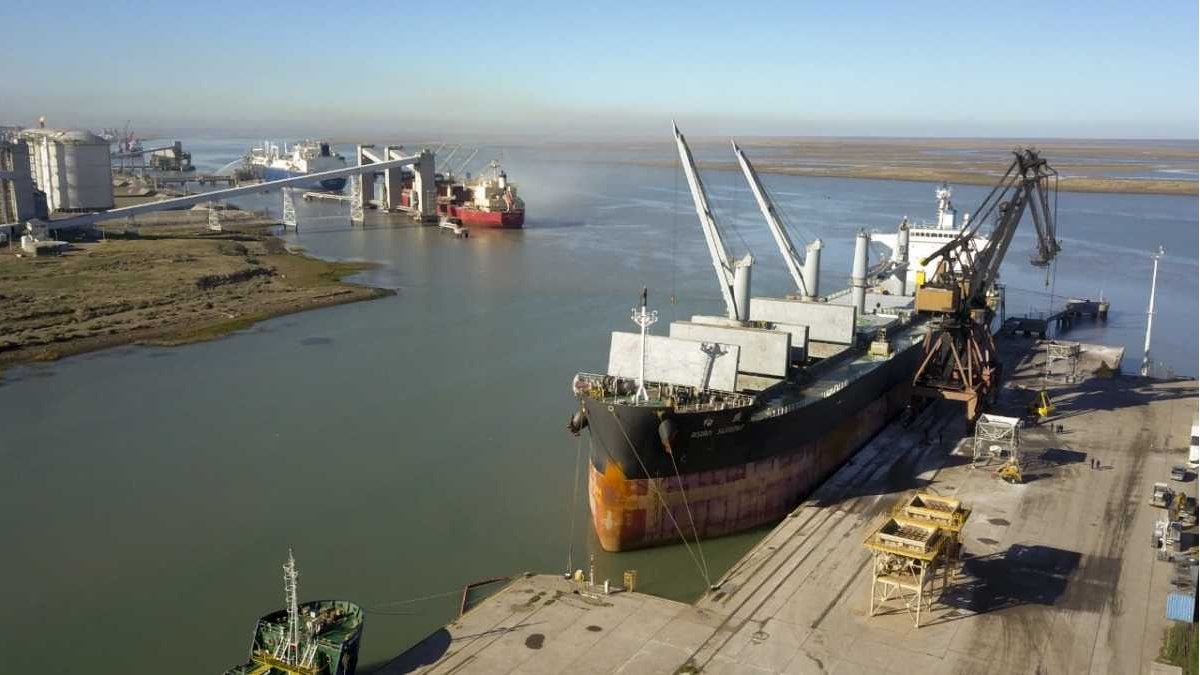The logistical, production and inflationary problems are a reality and could imply an “opportunity” for countries like Argentina.
Ukraine and Russia produce much of the supply to meet global demand for corn, barley, wheat, sunflower oil and fertilizer. According to the Organization for Economic Cooperation and Development, these two countries account for about 30% of global exports of wheat, a cereal that is the raw material for making pasta, bread, flour, and other packaged products with which it feeds millions of people and according to the International Food Policy Research Institute, Ukraine and Russia provide 12% of humanity’s calories, therefore as long as they remain outside the global supply, commodity prices will have a plus in their prices, which many analysts call “war prize”.
In our country, from the Government and the business sector -leaving aside the horror that a war poses- they are thinking about how to increase the export supply while paying high international prices.
What happens in the world strongly affects wheat, which is why the Ministry of Agriculture, Livestock and Fisheries sought by all possible means that the wheat chain could capture the high prices in the reference markets. A concrete measure to reach this goal was to expand the foreign sales quota to 10 million tons, enabling new registrations in the export registry.
The opportunities for wheat are not only in Brazil – which last year bought 5.5 million tons from Argentina – but options are opening up in the markets of Southeast Asia where Australia was a heavyweight. There today our country has a presence and the current context offers a new opportunity.
From the business sector they point out that while the Black Sea region is affected, countries in North Africa and Central Asia could require raw materials such as those that our country is in a position to provide.
As a function of this, the Government launched an assistance program for producers and will pay the fees to the Agricultural Engineers so that they advise those who have low productivity in their fields. The idea is to reach 25 million tons of wheat, some 5 more than what our country has targeted in recent years.
Another convenience posed by the war occurs in sunflower production, where the situation is similar to that of wheat. From the private sector they assure that the crop will be one of the stars of the campaign and that the high demand for seeds for planting will be a limitation.
Watch him remember that the current management reduced export duties for sunflower, for understanding that it is a regional crop. For this reason, they were lowered from 12% to 7% in oil and grain and 5% for pellets. Undoubtedly, at current prices sunflower is also an opportunity.
These issues are merely circumstantial and although they are still an opportunity to take advantage of, there are other variables that must be pointed out so that the exception becomes a rule.
Marcelo Elizondo, director of the consulting firm DNI (International Business Development), assured in dialogue with Ámbito that “Argentina exports close to US$45,000 million a year and probably in 2022 it will reach US$50,000 million taking into account different products of the agro-food chain. Some are very primary, such as grains, others are more elaborate, such as processed fruits, oils, concentrated juices, and others manufactured or fractionated, such as wines”.
An idea that has been floating around since the beginning of the war is to maximize export opportunities. Regarding this point, Elizondo states that “Argentina does not export more because it does not invest. Everything that is produced is exported, that is why it is necessary to produce more and that is achieved with investment”.
The international trade expert explained that “if we continue to produce primary goods, the main markets will always be in Asia, because they buy our products to industrialize. If instead we exported products that could go directly to the shelves, we would reach more demanding markets such as Europe or the United States.”
In any case, it is not only necessary to invest and increase the value added in the agro-industrial chains. Elizondo assures that “to increase exports, it is also necessary to advance in international economic negotiations, which allow Argentine products to enter the markets without obstacles, either because they pay high tariffs or because there are no signed free trade agreements. Negotiations are not only carried out to achieve lower tariffs, but also to eliminate possible obstacles and special regulations. If we achieve these changes, Argentina could export more products from regional economies, such as olives, peanuts, citrus fruits, pears and apples, yerba mate, infusions or fish. That’s where there’s a lot to grow.”
Source: Ambito
David William is a talented author who has made a name for himself in the world of writing. He is a professional author who writes on a wide range of topics, from general interest to opinion news. David is currently working as a writer at 24 hours worlds where he brings his unique perspective and in-depth research to his articles, making them both informative and engaging.




